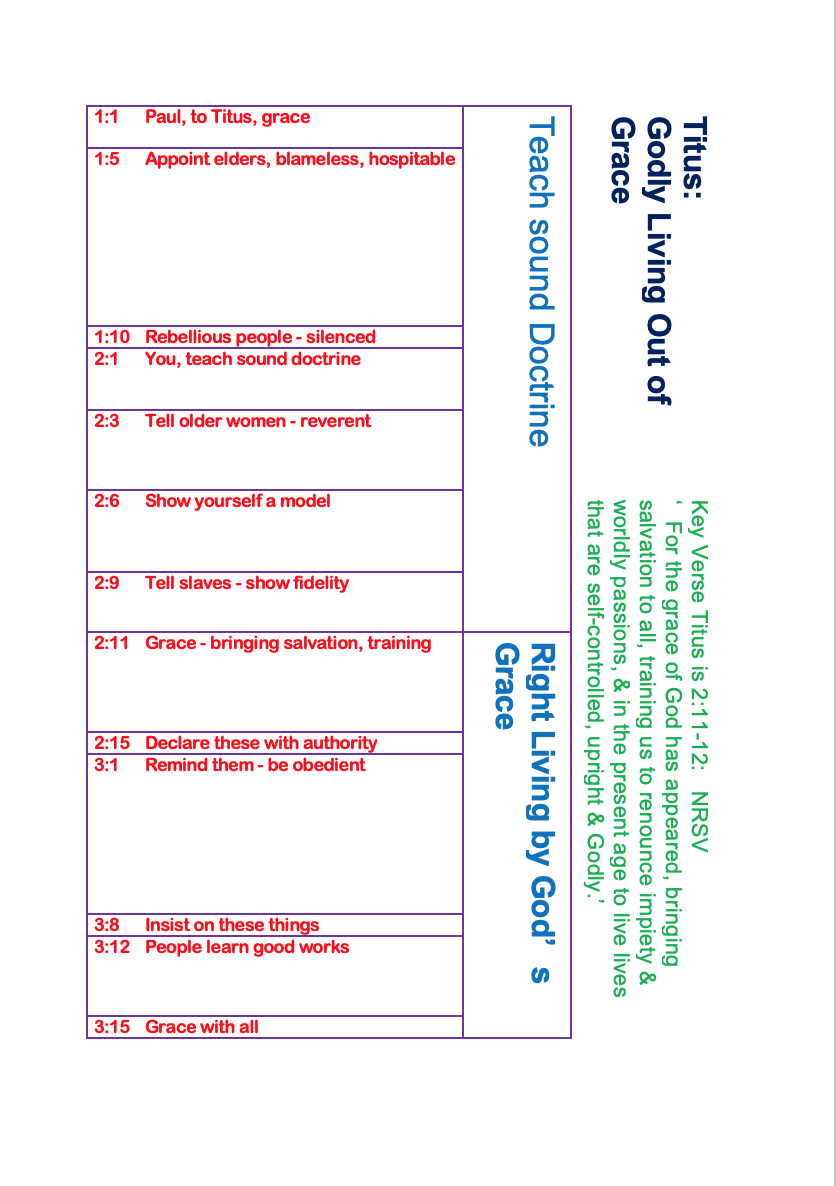The Basics of Inductive Bible Study: 
In this unit you will learn how to distinguish between different approaches to the study of the Bible and how to read the Bible well. You will understand what the inductive approach to Bible Study is and the three important steps, observation, interpretation and application, and how they each relate to each other. The main tools used for inductive study will also be explained. This unit is the foundation unit for all that follows. Take time to learn these lessons well.
Philemon

In this unit you will begin to study the Bible using the inductive approach. You will begin to develop the skills of observation, interpretation and application as discussed in the previous unit (The Basics of Inductive Bible Study). Using this short letter of Paul to Philemon, you will understand how the background and circumstances surrounding the letter open up these 25 short verses and you will be able to identify the core message of the letter. You will then consider the dynamic implications of this message for both yourself personally and for contemporary society.
Titus
In this unit you will continue to develop your skills of observation, interpretation and application, as in the previous unit. Using the letter of Paul to his co-worker Titus, you will discover the background and circumstances surrounding this letter, complete a character study of Titus, and consider the unchanging message of God’s wonderful grace, yet the responsibility of the believer to grow in Christian character. In Part 2 you will be introduced to the benefits and be given step by step instructions of the four ways used in this SBS course to record discoveries.
The SBS Study Method
In this unit you will be introduced to the innovative SBS Study method, with its five readings and the four ways to record your discoveries. This will be the main method you will use for the rest of the course.
This unit is an update replacing ‘Unit 3 Part 2: Tutus, Recording your Discoveries’.
(August 10th 2020)
Galatians
 Continuing to develop your inductive study skills, you will explore what might be Paul’s first letter. You will discover the background issues related to the writing of this letter and see how this opens up the meaning and relevance of this letter. You will be introduced to a group of teachers who we often meet in the New Testament, and see what a challenge they were to the infant church. In the ‘religious’ environment of many church situations today, you will have the opportunity to discover the radical implications of this short letter to contemporary Christianity.
Continuing to develop your inductive study skills, you will explore what might be Paul’s first letter. You will discover the background issues related to the writing of this letter and see how this opens up the meaning and relevance of this letter. You will be introduced to a group of teachers who we often meet in the New Testament, and see what a challenge they were to the infant church. In the ‘religious’ environment of many church situations today, you will have the opportunity to discover the radical implications of this short letter to contemporary Christianity.
